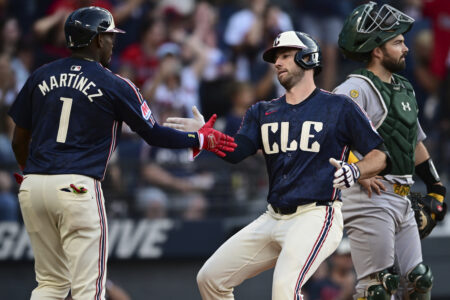Looking back on 13 years of WVU in the Big 12
MORGANTOWN — Can it really be that 13 football seasons have come and gone since West Virginia moved from the Big East to the Big 12?
And, perhaps even more important than accepting that reality is another question, one that is best answered not by a columnist, a radio talk show, a podcast or a social media tweet.
That question, simply and put forth in the most straightforward of manners as possible is this:
Is West Virginia in a better place now than it was then?
Call this, if you will, more a search for the pulse of the people, of the fans who follow West Virginia, for changes have come at us all fast and furiously as we enter a new world of college athletics.
We all have our opinions, but this is such a tangled mess that the answer isn’t anywhere near as simple as the question.
Let us begin back in 2007 when the Mountaineers stood atop the football world, needing only to beat a badly outmanned Pitt team that was a 29.5-point favorite to reach a game for the national championship.
On that day when the down button was pushed on the elevator, events changed the entire direction WVU athletics would take.
The Mountaineers lost Pitt. Rich Rodriguez left. The Big 12 football conference came undone, forcing the Mountaineers to look for a new football home if they wished to remain a national presence.
The Big 12 offered and WVU had no choice but to accept.
Geographically they didn’t belong. But what choice did they have. The schools with whom they had built a history with — Pitt, Virginia Tech, Maryland, Penn State, even Miami — were scattered across the new landscape.
The Big 12 rescued the program and so much more was to change. With the move their, athletic director Oliver Luck felt a coaching change was needed and brought in Dana Holgorsen with a totally new approach to football; a Big 12 approach.
WVU now would have to deal with Texas and Oklahoma, then Covid, then total realignment and expansion.
Holgorsen’s aerial circus got off to a wonderful start, a 10-3 season that included a included 70-33 humiliation of Clemson in the Orange Bowl to close out the Big East stay, then a Big 12 opener that saw them score 70 points again in a 70-63 victory over No. 25 Baylor as Geno Smith threw 8 touchdown passes.
That was part of a 5-0 start that had the city and the state abuzz, the Mountaineers having defeated Marshall, Maryland and No. 11 Texas along with Baylor while scoring 260 points in the five-game win streak.
But what goes up must come down and mysteriously WVU lost its next five games and would finish that season at 7-6.
It was the best of being in the Big 12 and the worst and there really hasn’t been the kind of success that preceded it.
The truth is in the 13 Big 12 seasons WVU has won 88 games and lost 74 while compiling a 58-58 record in conference games. It is nowhere near the success it enjoyed in the 12 years before coming to the Big 12, years in which 109 games were won and only 53 lost with a 60-30 Big 12 record.
Now the Mountaineers are trying to regain their place in the football power structure but while the world is moving forward at an incredibly rapid rate, they have chosen to try to find lost glories with the man who gave them to the school in Rodriguez.
This is not to put a knock on that decision. Rich Rodriguez brings exactly the old school attitude, the emphasis on playing with an edge rather than living on the edge, with a belief that if you outwork and “out want” the opposition — be they in Arizona, Oklahoma, Colorado, Utah, Kansas, Iowa, Ohio, Florida or wherever — you can do it.
There are men who fit certain moments and situations and they are betting, in an era where coaches are counting on deep pockets and an emphasis on artificial intelligence in analytics and game planning, that Rodriguez brings the heart and soul of the state with him and will be driven to make his second run as coach match his first.
He has brought with him some of the architects of his successes in the past in Pat White and Noel Devine and Rasheed Marshall, who can help inject the attitude and aptitude that carried them to three consecutive seasons of 11 victories.
There’s no question that it will be harder now for Rodriguez and West Virginia, West Virginians live through such challenges on a daily basis.
In a way, it’s a gamble, but at least it’s a gamble in which they are betting upon themselves for Rich Rodriguez is nothing if not West Virginia.
Would it not be better to be in a situation as it was back in his first term, like 2005 when he played Maryland, No. 3 Virginia Tech, No.19 Louisville, Pitt, Cincinnati and a bowl game Georgia or even in that 2007 season when they played a schedule that included five ranked teams, beating four of them, while also having Maryland and Marshall on the schedule along with Pitt?
Is West Virginia in a better place today? That’s today’s question and I think all of us would like to hear your thoughts.
What do you think as the season approaches?


